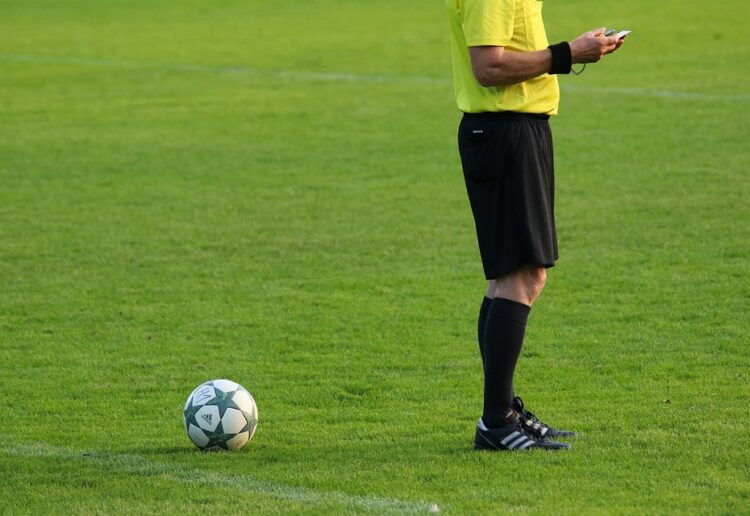We have become used to receiving changes in the Laws of the Game at the start of each season but this year there was something unusual, when we received a joint statement from the IFAB and FIFA about a Law not being changed.
It all started with the UEFA Nations League Final, when Spanish player Eric Garcia tried to intercept the ball being passed to France’s Kylian Mbappe, who was in an offside position.
Garcia only succeeded in knocking the ball onto Mbappe, from which he scored the winning goal. Roberto Rossetti, the UEFA Head of Referees, said that the referee, England’s Andrew Taylor, acted within the Laws but he felt it was against the spirit of the Game.
He declared his intention of discussing it with the IFAB and FIFA with a view to getting the Law changed. The result is probably not what he wanted, for this is what it has said.
As the Law stands, a player in an offside position, remains offside if on the way the ball is deflected by a defender. However, if the defender has deliberately played the ball, it puts him onside.
The joint statement does not alter this, but describes deliberate play as when a player has control of the ball, with the possibility of passing it to a team mate, or gaining possession of the ball, or clearing the ball, (kicking or heading).
if however the attempt to control the ball, is inaccurate or unsuccessful it does not negate that the player has deliberately played the ball.
Referees are given criteria to judge this, but the phrase that worries me is ‘has control of the ball’. Let me illustrate this, with a personal experience when refereeing a national under 18 cup semi-final.
Second half of extra time, and scores were still level, when one goalkeeper kicked the ball well into opponents half.
All the players chased after it, with the exception of one defender and one attacker who remained behind him. The ball reached the other goalkeeper, who promptly lashed it back high down field.
The defender jumped with the intention of heading the ball back in the opponents half but only resulted in knocking it towards the offside opponent, who ran with it and put his team in the final.
I couldn’t say that the defender had ‘control of the ball’ but he had deliberately taken the action to head it. So instead of it relying on the defender having ‘control of the ball’, shouldn’t we say, having ‘control of his action’.
























